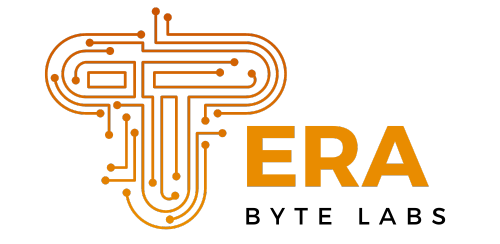Investing in a CNC machine can be a game-changer for small businesses, offering precision, efficiency, and the ability to scale production. Whether you’re in the manufacturing, woodworking, or metalworking industry, selecting the right CNC machine is crucial for your business’s success. However, with so many options available, choosing the best machine can be a daunting task, especially for smaller operations that must balance performance and budget.
Yijin Hardware offers high-quality CNC machining solutions tailored for businesses of all sizes, including small enterprises. In this guide, we’ll explore the key factors small business owners should consider when choosing a CNC machine to ensure maximum productivity and return on investment.
Assess Your Business Needs
The first step in selecting a CNC machine is to clearly define your business needs. Different industries and projects require different machine capabilities. Start by evaluating the types of materials you will work with (such as metals, plastics, or wood) and the complexity of the parts you need to produce. Ask yourself the following questions:
- What types of products or components will I be manufacturing?
- What level of precision and accuracy is required?
- How large or small are the parts I need to create?
- Do I need a machine for prototyping, full-scale production, or both?
By understanding your specific requirements, you can narrow down your options and focus on machines that best suit your operations. For example, if your business deals with metal fabrication, you may need a CNC machine with robust cutting and drilling capabilities. On the other hand, if you’re in woodworking, you’ll likely want a CNC router with multi-axis capabilities for intricate designs.
Consider Machine Type and Capabilities
Once you’ve assessed your business needs, the next step is determining which type of CNC machine is best suited for your projects. CNC machines come in various types, each designed for specific applications:
- CNC Milling Machines: Ideal for cutting, drilling, and shaping metal or hard materials.
- CNC Routers: Perfect for cutting and carving wood, plastic, and softer materials.
- CNC Lathes: Best for cylindrical objects, used in turning operations.
- CNC Plasma Cutters: Excellent for cutting thick sheets of metal using high-velocity ionized gas.
Each machine type has different capabilities, so it’s important to choose one that aligns with your business requirements. Additionally, consider how many axes the machine has. A 3-axis CNC machine will move on three linear axes (X, Y, and Z), while more advanced 5-axis machines can rotate on additional planes, allowing for more complex cuts and shapes. For small businesses, a 3-axis machine may be sufficient, while a 5-axis machine is ideal for advanced, high-precision projects.
Evaluate the Available Space
CNC machines come in various sizes, and it’s essential to ensure you have adequate space in your workshop or facility to accommodate the machine. Consider the machine’s footprint, including additional space for materials, tools, and operator access. Keep in mind that larger machines typically offer more capabilities, but they may not be practical if you have limited floor space.
It’s also important to think about the machine’s power requirements. Some machines may need specific electrical setups, so ensure that your facility is equipped to handle these requirements without extensive modifications.
Look at Software Compatibility
The software used to run your CNC machine is just as important as the hardware itself. CNC machines are operated using Computer-Aided Design (CAD) and Computer-Aided Manufacturing (CAM) software, which convert your designs into instructions for the machine to follow.

Before purchasing a CNC machine, check its software compatibility to ensure that it integrates seamlessly with your existing systems. Many machines come with their own proprietary software, but it’s also important to ensure they support commonly used CAD/CAM programs like AutoCAD, Fusion 360, or SolidWorks.
Choosing a CNC machine with user-friendly software is especially important for small businesses that may not have dedicated staff with extensive technical knowledge. Software that allows for easy design changes, real-time monitoring, and process automation can significantly streamline operations.
Budget Considerations and ROI
For small businesses, budget is often a major factor when choosing a CNC machine. While it may be tempting to opt for the least expensive option, it’s crucial to weigh initial costs against long-term benefits. CNC machines vary widely in price depending on their size, capabilities, and brand, but investing in a high-quality machine can result in greater efficiency, reduced waste, and increased production capacity.
Consider your long-term business goals when evaluating costs. A machine that offers advanced features like automation, multi-axis cutting, or high-speed production may have a higher upfront cost but could offer better value by increasing productivity and reducing manual labor.
Calculate the potential return on investment (ROI) by considering how much time and money you’ll save through automation and precision. A machine that can handle a higher volume of work or reduce errors may pay for itself faster, even if it’s initially more expensive.
Durability and Maintenance Requirements
Small businesses need CNC machines that are not only efficient but also durable enough to handle regular use. Before making a purchase, research the durability and maintenance requirements of the machine. Machines made from high-quality materials will last longer and require less frequent maintenance, reducing downtime and repair costs.
Check whether the manufacturer provides comprehensive maintenance plans, spare parts availability, and customer support. Some machines require more upkeep than others, so it’s important to choose a machine with a reasonable maintenance schedule that won’t disrupt your operations.
Additionally, make sure to read reviews and testimonials from other small business owners to gain insights into how the machine performs in real-world settings.
Seek Out Support and Training Options
Another critical factor when choosing a CNC machine is the availability of support and training from the manufacturer. Small businesses may not have extensive technical expertise in-house, so having access to professional support can make a big difference in successfully implementing CNC technology.

Before committing to a purchase, inquire about the training programs offered by the manufacturer. Many companies provide setup assistance, operator training, and ongoing technical support to ensure you can use the machine to its full potential. This support can help you avoid costly mistakes and get the most value out of your CNC machine.
Conclusion
Choosing the right CNC machine for your small business is a significant decision that can impact your production efficiency, product quality, and long-term success. By carefully assessing your business needs, understanding the types of CNC machines available, and considering factors like budget, space, software compatibility, and durability, you can make an informed decision that aligns with your goals.
Working with a reliable manufacturer like Yijin Hardware ensures that you receive not only a high-quality CNC machine but also the support and expertise needed to maximize your investment. With the right machine in place, your small business can take advantage of the precision, scalability, and efficiency that CNC technology offers.


